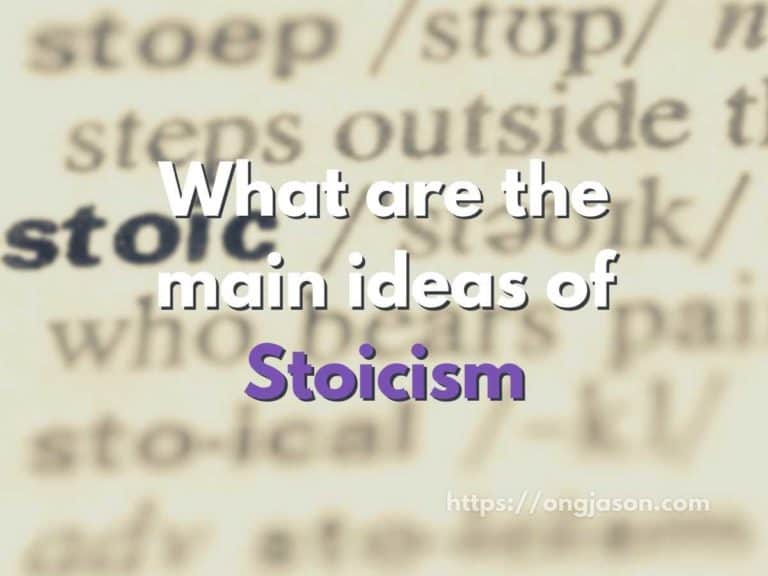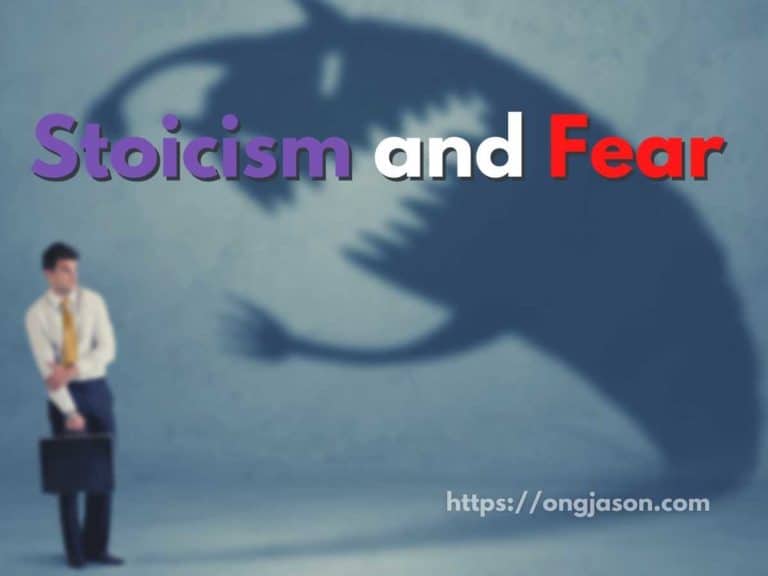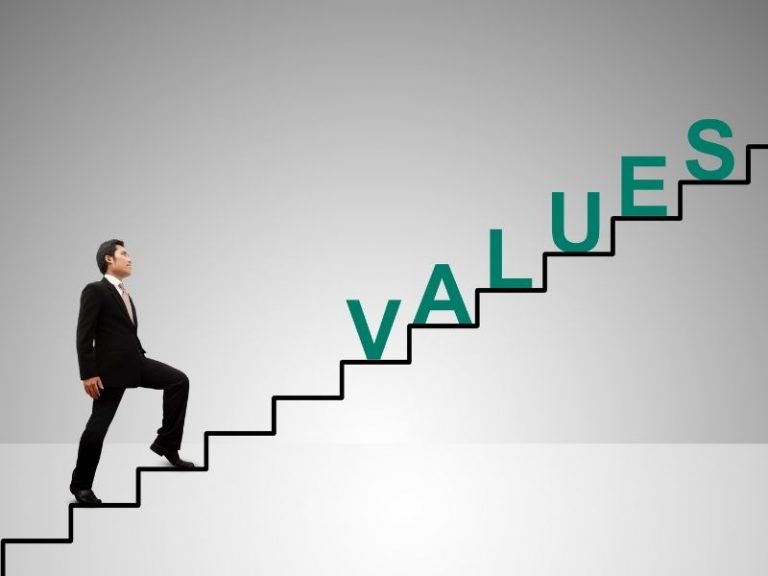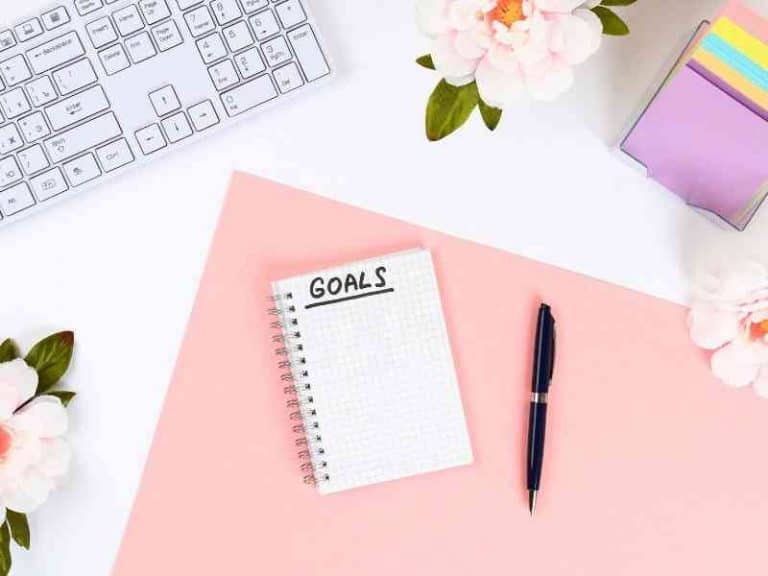A Complete Guide to Personal Skills: Definition and How to Identify Them
When working on your curriculum vitae, also known as a CV, one of the things you are going to list is your personal skills. These skills are one of the first things an employer or someone interested in hiring you will be looking at. Thus, it is very important for you to write down these skills in your CV or even your resume so that they can look at them. Furthermore, you also need to prove those skills in the interview process. But before all of that, what exactly are personal skills?
Personal Skills are skills that a person possesses which deem their strength and weakness. This includes their inner ability to positively interact with one another, their problem-solving ability, creative thinking, or their soft skills. It is simply the skills that a person considers to be his or her strength.
In this blog post, we are going to talk about personal skills. First, we will be defining personal skills and the common definition people follow regarding them. Furthermore, I will be giving the most common personal skills that employers see as important. We will also look at some of the common personal skills. Lastly, I will explain how we can find out our own personal skills so we can write the exact ones we currently possess.

What are Personal Skills?
Personal skills are the innate skills or abilities of a person which are a combination of people skills, social skills, character traits, attitudes, social intelligence, and emotional intelligence. These are different from professional skills which include the ability to code, typing speed, degree, and computer skills.
Now that you are already familiar with what exactly is a personal skill, we are going to talk a little bit deeper so you’ll get a clear picture.
Personal skills are the skills you have as your trait, behavior, or your personality itself.
Some people call it soft skills and some call them interpersonal skills.
Personal skills being soft skills is entirely true but personal skills being interpersonal skills is not entirely true.
Interpersonal skills are skills we use to communicate with each other. It is our skill to both give and receive information.
In short, it is our ability to interact with a person or a group of people.
However, personal skills are wider in concept because they not only talk about a person’s skill to communicate but also their critical thinking, independence, problem-solving skills, and time management skills.
In summary, interpersonal skills are just a part of personal skills. Personal skills have a wider scope.
Also, when we talk about interpersonal skills are divided into two which are productive and receptive skills. I have a blog post talking about that topic but if you are interested in that, you can find it here: Productive vs Receptive skills: What is the difference
The next thing to talk about is personal skills in relation to soft skills.
In that case, I agree that they are interchangeable.
Soft skills are basically the skills that improve various aspects of your life.
For example, being a good leader is good for numerous job opportunities. Being good at time management is very useful for many types of jobs.
For time management tips, I have a blog post where I gave some good tips in order for you to stop being bad at time management. I think it is a good article to read especialy if you want to write that you’re good at time management in your resume or CV. Here is the link: How to avoid poor time management
Thus, it is very related to personal skills.
The opposite of personal skills in this case is professional or hard skills. Hard skills are skills that are very specific to the job.
For example, your coding skills are good as a developer, bookkeeping skills for recording, and so much more.
Degrees are also included in hard skills.
As of now, you probably fully understand personal skills. But what exactly are the personal skills employers are usually looking for? Let’s find out in the next section.

What are the important personal skills?
The most important personal skills are emotional intelligence, interpersonal skills, critical thinking, creativity, flexibility, leadership, collaborative skills, attention to detail, and independence. These skills are the ones that the majority of employers are looking for and having at least 5 of these gives you an advantage in the hiring process.
However, there are lots of important personal skills that a person might possess and different jobs require different skills.
That’s why while I listed some of the most common skills that employers are looking for, it doesn’t mean that they are all looking for the same candidates.
Thus, here, I have listed some of the important personal skills that you can adapt, learn, and use in your CV.
1. People Skills
I already discussed this in the last section as interpersonal skills are the main part of personal skills.
In people skills, I am talking about your ability to communicate with other people.
Are you able to give information clearly? Or you are bad at communicating with your peers?
Are you good with getting along with others? Or are you quite bad at it?
The good thing about skills is that they are learnable. So, even if you’re bad at a certain type of skill, you can improve.
For example, I learned to speak in public and in-camera even if I am an introvert. I am so bad at speaking that my first lecture and first YouTube video are really bad.
But that doesn’t mean that I can’t get better.
So, that is people skills. Some include emotional intelligence in people skills since it is the ability to understand the person’s emotion and provide empathy.
Basically, people skills are your communication skills. How you communicate with a person or group of people.
2. Leadership Skills
Not all people who are good at communicating are good leaders.
People who are good at communicating are good team players but they aren’t good leaders.
Being a leader requires a lot of things such as properly delegating tasks, the ability to work under pressure, the ability to plan ahead, and so much more.
A good leader is a compassionate person which understands their people’s skill level. They understand their team member’s strengths and weaknesses.
Thus, they know how to delegate according to their team member’s skill set.
They are also able to be empathic to others allowing them to understand their people on a deeper level.
In short, being a good communicator doesn’t mean that a person is a good leader.
Leadership requires a lot more skillset and it is one of the personal skills that a person can develop over time.
Thus, your ability to lead is a personal skill that you can build with experience.
3. Collaborative Skills
Collaborative skills are the skillsets that allow the person to follow or to work with other people.
The thing here is that not all people are good followers.
Some are hard to work with and can be quite a problem, especially for larger projects.
Collaborative skill is your ability to follow whoever is in charge. It is your ability to work together to achieve a larger goal.
A lot of employers are looking for people who are team players. If you are one of them, then you can include collaborative skills in your CV.
4. Adaptability
Things change even in the workplace. That’s why a lot of employers are looking for someone who is good at adapting.
Adaptability is also known as flexibility.
This means that it is the ability of the person to respond to changes.
For example, are they willing to change their work schedule when there are lots of work to be done?
Are they willing to work in another location? Are they willing to work at home if the need arises?
That’s adaptability.
Another reason for the need for adaptability is that things just change.
For example, there is a time where processes need to be changed because a better one is available or an employee suddenly leaves so your workload will suddenly increase while waiting for a replacement.
A person who is good at adapting is an asset to any business.
That’s why you will see a lot of job postings looking for people who are flexible and can adapt easily to changes.
5. Problem Solving Skills
One of the skills employers are looking for is people who can really solve problems.
As someone who already has years of experience in an office setting, I can easily tell if a person is a problem solver.
The thing is that a lot of people are not good at problem-solving. They easily succumb to stress and blaming others instead of working to fix a problem.
The ability to solve a problem before it becomes big or the ability to solve a big problem is one of the important personal skills that a person can develop.
It is your ability to work instead of giving up to pressure. It is your ability to fix a problem and not give it to others.
Furthermore, it is the ability to solve conflicts and disputes in the work environment.
Since it is normal to have some conflicts in an office setting, a person who can help solve problems is a relief.
That’s why it is one of the most important skills a person can write and prove in their resume or CV.
6. Independence
Independence is a skill that big companies always look for.
Independence is the ability to work without anybody instructing them or their ability to work on their own without the help of others.
One of the things that irritate big executives is an employee who always needs instructions to work.
There are just some who will not work if there are no instructions given to them.
For executives who are really busy, they don’t really have time to always instruct a person what to do.
Thus, they are always looking for people who are independent. They want people that are finding the work they can do even without any instructions.
They are looking for people who have the initiative to move. They are looking for people who can self-motivate and make themselves work regardless of the situation.
That’s why big executives are very keen on hiring an assistant. They are always looking for somebody who works on their own.
7. Attention to Details
Ever wonder why you will always see the words attention to detail in job postings?
In the previous section, I told about independence in which a person’s ability to work on their own.
But there are times where clear instructions will be given.
That’s where attention to detail is necessary.
If the instruction is to submit the paper at 3:55 PM, then submit it at 3:55 PM.
If the instruction is to make a 5 pages report, then make it 5 pages.
In following instructions, minute detail counts.
In fact, a boss might be considering something important that’s why they are keen on small details.
This is a skill that most employee thinks of as nothing but employers are really looking for people with this skill.

8. Critical Thinking Skills
Critical thinking is the ability to analyze, apply, conceptualize, and evaluate situations and data. It is the ability to reason and observe in order to drive action.
Critical thinking is important in a lot of jobs especially in jobs where there are lots of data to solve.
In general, people call this common sense.
This is especially true in a competitive job setting where logical reasoning is important.
9. Time Management Skills
For example, you have two employees but you need to fire one since you are in a tough spot financially.
One can finish the job twice as fast as the other one. Who will you fire?
If you are like most people, you will keep the one who can finish their job twice as fast.
The reason is that the person is just more productive and you can be sure that they just get things done.
That’s how important productivity or time management is.
Time management is the ability to do more things in less time. It is the ability to finish tasks despite intense pressure.
And there are lots of companies looking for these types of people.
10. Organizing Skills
There are some workplaces that work well with clutter and there are ones that like a cluttered free workplace.
If the place you would want to work with is a place that is clutter-free, you best be sure that they are looking for people who are good at organizing.
This means organizing folders, keeping the workplace clean, and even organizing files so they can easily be searched.
Usually, an organized person is also productive since they can easily sort their files and ideas.
Furthermore, it provides less stress since too many papers in a table often result in mental stress.
11. Creative Skills
Creative skills are skills that help a person create ideas.
It is the ability to produce something unique.
People who are creative are good at out-of-the-box thinking. This means that they are good at generating unique ideas whether that is for their office productivity, products, and so much more.
They would always give new ideas to meetings which can be used to make their brand unique.
This skill is especially helpful if you are applying to jobs that require something new such as in the tech industry, video industry, or art industry.
12. Dependability
Dependability is the ability to be someone a person can rely on.
For a company, to have an employee who they can rely on in times of need is pure gold.
It is the next level of independence.
In independence, you can just work for yourself without anybody instructing you. But if a person starts to rely on you because they know that you will do your best, it is another story.
People who are dependable would always do their best. That’s why the boss will not worry about delegating tasks to them.
This personal skill is one of the things that can separate an applicant from others.
13. Responsibility
Responsibility is the ability to respond to anything.
It is the ability to respond to changes in a positive way.
It is a sign of maturity. It is about owning their mistake.
They act based on professionalism and are confident in themselves. In fact, a responsible person will take everything including their mistakes.
This skill is one of the most important skills or traits you can add to your CV. However, make sure you can prove it both in the interview and in the job itself.
How to identify your personal skills?
In order to identify your personal skills, you first need to reflect on your current situation by identifying your personal qualities and achievements. You can also ask other people including your peers, former boss, and family members since they can sometimes give some things you overlook. Lastly, check other people since you can get some inspiration from them.
Now, I am sure that most of you will not have every personal skill I’ve placed in the last section.
Nobody is perfect and even I have my own flaws.
So, we need to find what is our own personal skills that we can add to our resume.
We need to do this because if we just place all of those in our CV, for one, it will be unbelievable. The second is that it is hard to prove that you have everything given.
Thus, we just need to include the ones we really have.
But how can we identify our personal skills?
Here, I have 5 ways you can do right now in order to do so.
1. Don’t Be Too Negative or Too Positive
In finding your personal skills, it is important to not be too negative or too positive.
We need to handle this with a clear state of mind and we need to be really analytical and objective.
Remember that being too positive can make you place some skills that you don’t really have while being too negative will do otherwise.
But if you can’t really think right now, then don’t worry since I have some more tips for you.
2. Check Other People
One of the things you can do to check your personal skills is to check other people.
This can both be positive or negative.
For example, if someone is really bad at time management, then it can make you realize that you are good at time management.
Or that if you see someone is very responsible and then you have the same personality, then you are most likely also responsible.
This can be very helpful if you do it with being neutral in thinking. Remember that being too positive or too negative can really affect how you identify these personal skills.
3. Ask Other People
If you’re really not in the mood to think, then this will really work for you.
Even if you are a critical thinker, there are just things we can’t really see.
The thing is that people who are close to us can usually see those.
For example, when I asked someone before what am I good at, she said that I am good at giving some advice which is one of the reasons this website and my YouTube channel were made.
Thus, you can ask your strengths to your former boss, coworkers, friends, or even your family members.
The closer to you the better since they will most likely understand you more than mere acquaintances.
4. Reflect on Yourself
Since you are already reading this blog post, why not use it to the fullest.
Here is what you will do.
Look at the personal skills I’ve listed in the previous section and check for yourself which among them are your skills.
As I said, it is quite impossible for all of those to be your skills but you can find some that perfectly suits you.
By using this, you can surely find some skills you can place in your CV or resume.
5. Familiarize Yourself With Job Postings
If you are specifically applying for a job, then what you can do is to check the job postings.
As I said, there are job postings that specifically list the skills they need such as flexibility, ability to work under pressure, attention to detail, and so much more.
The general rule of thumb is to check 3 to 5 different job postings and find out the skills that they are looking for.
Now, you can compare yourself to these skills and write them into your resume.
With these tips, you will be able to identify your own skillset.

“Only the things I love.“
ongjason.com is reader-supported. When you buy through links on the site, I earn an affiliate commission.
If you’re following me, you’ll know that I believe it is essential to have some tools, whether it’s for personal development or lifestyle in general.
So, here are the things I love.
YouTube
If you want to learn things for free, I recommend watching my YouTube Channel. Click the Button Below to go straight into my Channel. 🙂
Okay, let me first explain my Channel.
I believe that I really can’t explain everything too well on my blog. That’s why I created a YouTube Channel so I can easily explain a lot of things. Plus, I believe that Video Sharing is the future.
Recommended Books
The next thing is books. Books are, for me, one of the cheapest ways to get invaluable information. We can learn personal development, finance, career, relationships, and many more from books.
Here, I will be listing my favorite books in different categories.
- For Beginners – 7 Habits of Highly Effective People by Stephen Covey – Personal development has a lot of concepts and ideas to learn. Thus it can be really hard for beginners to know where to start. Thus, I recommend this book since all the basic concepts of personal development are here(except finance, check what I recommended for that)
- Productivity – The One Thing by Gary Keller – This book teaches us the power of focusing on one thing which is the ultimate source of productivity. The concepts taught are what I am using to constantly publish YouTube videos while maintaining this website.
- Busy? – Make Time by Jack Knapp – This book teaches us how to make time for the things we love. The concept is really simple but I think that makes it a book worth reading.
- Health – Lifespan by Dr.Sinclair – This Book teaches about the latest scientific research on lifespan. In his book, he has shared numerous things he is doing to slow down his aging process. This can be as easy as eating less which he recommends.
- Finance – The Richest Man in Babylon by George Clason – Perhaps one of the first books I’ve read about Finance, this book for me is the best if we are talking about learning basic finance such as basic saving and investing. The concepts are very simple but effective.
Audiobooks
Take this advice as a grain of salt.
I don’t recommend buying Audiobooks one by one. I mean, audiobooks can be quickly finished by listening while working out or doing some mindless tasks.
So here is to save you some money. Just go for a monthly subscription to Audible. I believe that you will save a lot of money with that plus, they usually give freebies to anyone starting.
My Audiobook Recommendation will always be the same as my book recommendations, but I personally like The 5 Second Rule by Mel Robbins. I like how she is so casual while reading her book.







